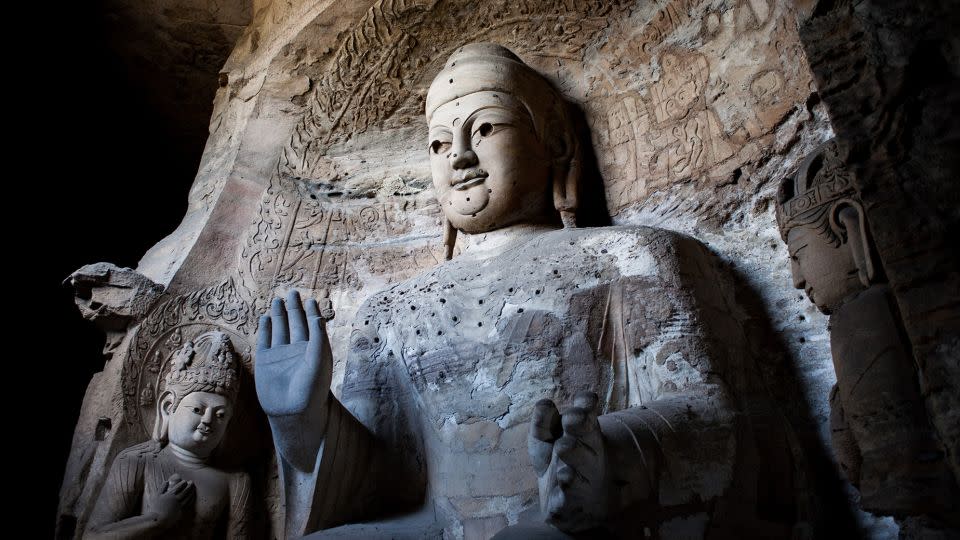With 51,000 statues carved into 252 caves and niches some 1,500 years ago, China’s Yungang Buddhist Caves are an undeniably spectacular attraction.
But in recent days, the toilets at this UNESCO World Heritage site have received more attention than the view.
A video recently shared on several Chinese news and social media sites shows a series of timers installed above a row of toilet stalls in a ladies’ room, with each toilet getting its own digital counter.
When a stall is empty, the pixelated LED screen displays the word ’empty’ in green. When in use, it shows the number of minutes and seconds the door has been locked.
‘We won’t throw people out halfway’
The original video was reportedly taken by a visitor who sent it to the Xiaoxiang Morning Heralda local state newspaper.
“I thought it was quite technologically advanced, so you don’t have to queue outside or knock on the bathroom door,” the newspaper quoted the visitor as saying.
“But I also found it a bit embarrassing. It felt like I was being watched.”
An employee at the attraction reportedly told the Xioxiang Morning Herald that the timers were installed to accommodate the increase in visitors to the attraction – and that includes the facilities in the tourist spot.
“They are not there to check how long you can use the toilets,” the staff member was quoted as saying by the newspaper.
“There’s no way we would kick someone out of the bathroom stall halfway through. And we don’t put a time limit, such as five or 10 minutes, on how long someone can use the restrooms.”


Nanchang Evening News, a state-run newspaper, quoted a park employee as saying that the timer has been in operation since May 1 this year and is primarily a safety measure, “guaranteing the well-being of all guests, in case some guests use the toilet for a longer period of time and an emergency occurs.”
The news has sparked much discussion on Chinese social media sites.
Some Internet users on a popular microblogging platform Weibo supported the new timerssaying they would discourage visitors from sitting on their mobile phones and scrolling while in the stalls.
“A tourist place is not an office – who would spend their time in the toilets? Is it really necessary?” said one netizen.
“Why don’t they just spend the money on building more toilets?” said another.
Others said it would help those who actually have medical emergencies and may not be able to call for help.
Record-breaking visitor numbers
The Yungang Buddhist Grottoes, declared a UNESCO World Heritage Site in 2001, are one of the major attractions in northern China’s Shanxi Province.
The nature reserve with maps received 3 million visitors in 2023a record high for the tourist site and a significant increase compared to the second busiest year, in 2019 (with 1.98 million visits).
And Yungang Buddhist Caves has modernized more than just the toilets. In recent years, officials have introduced new shows and added new mini-attractions in the area to broaden its appeal.
For more CNN news and newsletters, create an account at CNN.com







